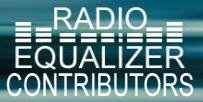Whether it's politics, broadcasting, finance, or any other field, there are always snakes in the grass. Sometimes they're in the places you least expect.
The Bush family is known for the high value it places on loyalty and trust. Sadly, however, no one is able to correctly assess another's character 100% of the time.
President Bush found this out the hard way today as a former aide to his father pulled a Jim McDermott, releasing secret tape recordings to reporters of W's private moments.
Yet again the
New York Times shows how shameless it is when it comes to exposing private conversations of Republican public officials. In the McDermott case, a tape of illegally intercepted mobile calls featuring top Congressional Republican leaders was leaked to the extremist Seattle congressman, who in turn gave it to the
Times.
If the Times were to receive a similar tape featuring Democrats, would it publish the details or keep it under wraps? Do I really need to ask this question?
Did Wead violate any laws? What are his motives (see below for update)? Was he paid by the New York Times for the recordings?
(AP)NEW YORK -- Private conversations with George W. Bush secretly taped by an old friend before he was elected president foreshadow some of his political strategies and appear to reveal that he acknowledged using marijuana, The New York Times reported yesterday.
The conversations were recorded by Doug Wead, a former aide to Bush's father, beginning in 1998, when Bush was weighing a presidential bid, until just before the Republican National Convention in 2000, the Times said in a story posted on its website.
On one tape, Bush explains that he told one prominent evangelical that he would not "kick gays, because I'm a sinner. How can I differentiate sin?"
Bush also criticizes then-Vice President Al Gore for admitting marijuana use and explains why he would not do the same.
"I wouldn't answer the marijuana questions," he said, according to the Times. "You know why? Because I don't want some little kid doing what I tried." According to the article, Wead played 12 of the tapes to a Times reporter. He said he recorded them because he viewed Bush as a historic figure.
The White House did not deny the authenticity of the tapes. "The governor was having casual conversations with someone he believed was his friend," White House spokesman Trent Duffy said, referring to Bush.
UPDATE: ABC reporting Wead never intended for tapes to become public, blames his publisher:
Feb. 20, 2005 - The friend of the Bush family who secretly recorded nine hours of conversations with George W. Bush says he never intended for the tapes to become public but felt he had a duty to accurately represent a man who he believed would one day become president.
Doug Wead, the author of the new book "The Raising of a President," surreptitiously recorded his conversations with Bush beginning in 1998, when Bush was governor of Texas and considering a run for president.
Wead, who has written extensively about other first families, including the Kennedys and the Roosevelts, believed Bush would become a "pivotal figure in history."
"I had a choice to either write propaganda about the Bushes or write accurately and fairly based on what I knew," said Wead in an exclusive interview with "Good Morning America."
Wead said his publisher insisted on listening to the tapes to confirm anonymous sources cited in the book. The New York Times then got wind of the tapes, and from there, it "all became unraveled," Wead said.
Wead played about a dozen tapes to a reporter from the Times over the past several weeks, and the paper confirmed their authenticity with an audio expert, according to an article in the paper today.
Do the last two paragraphs conflict? Why was Wead compelled to play the tapes for the New York Times? There's a difference between varifying the materials for your publisher and leaking them to a reporter. Wasn't this clearly done to sell more books?




